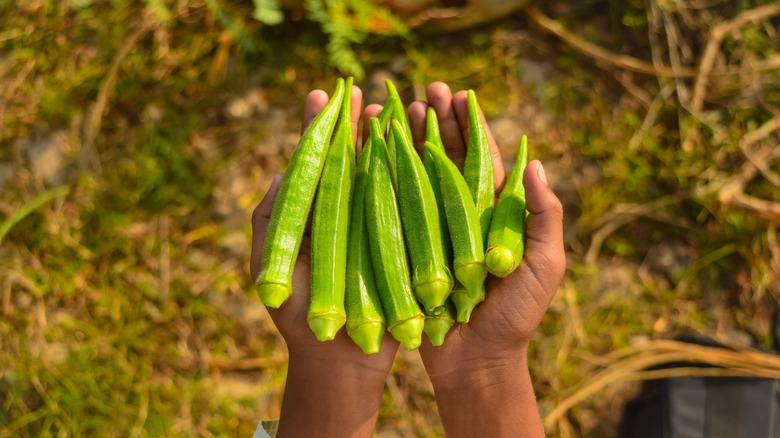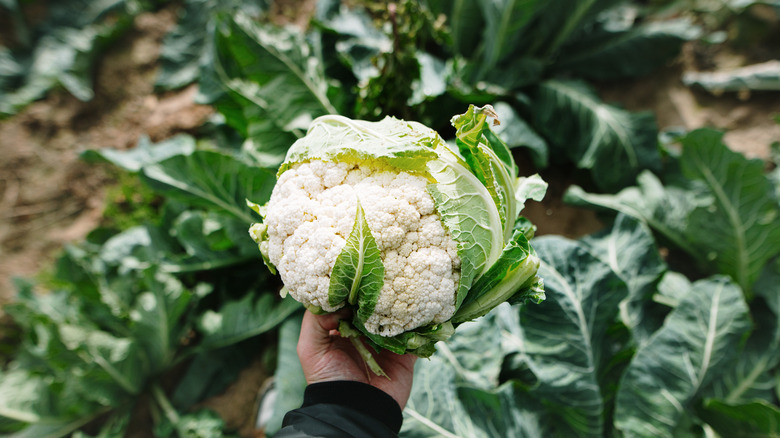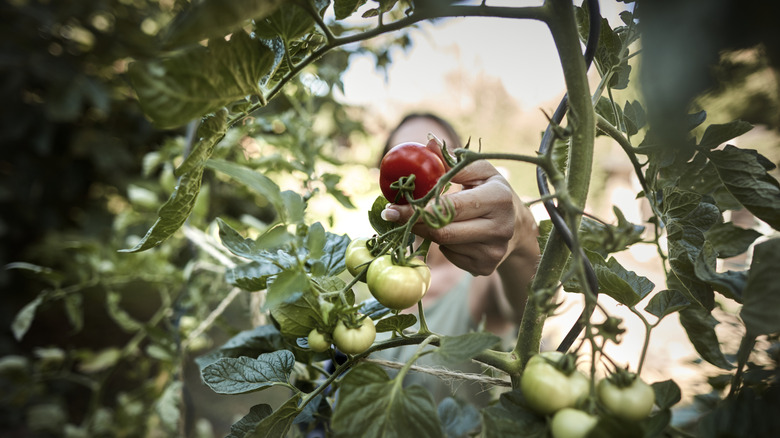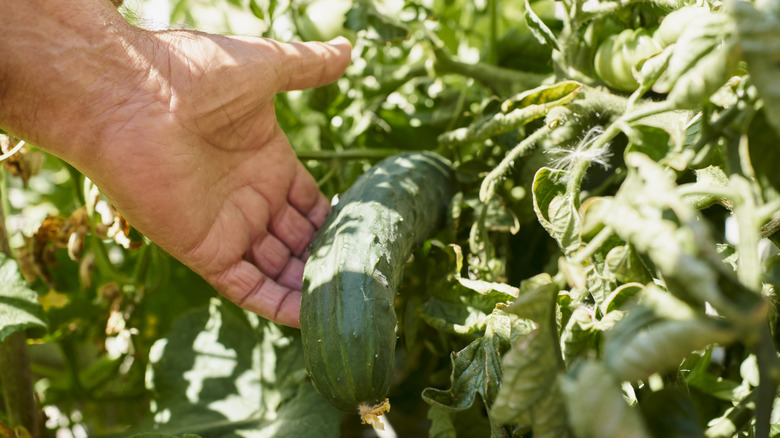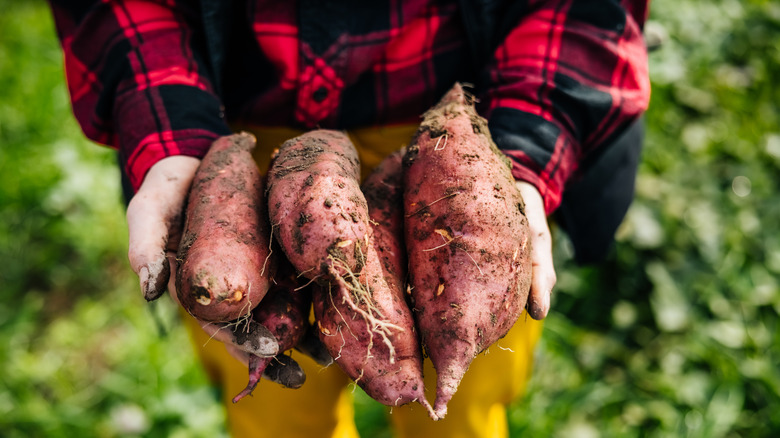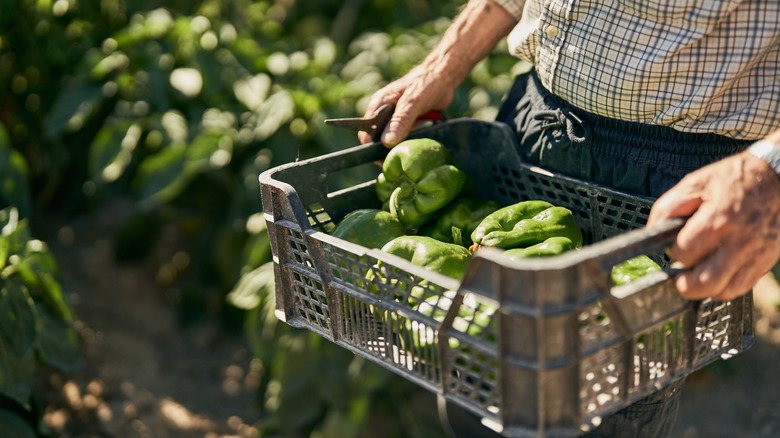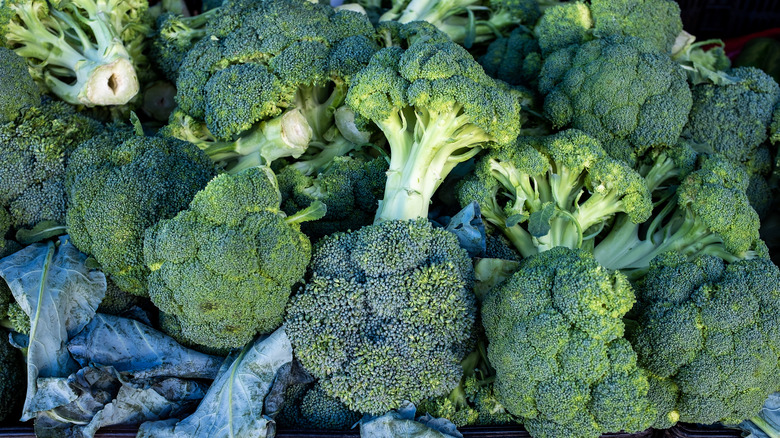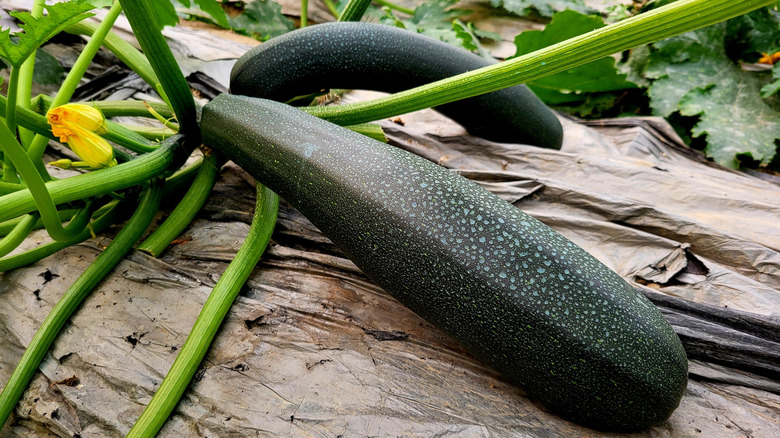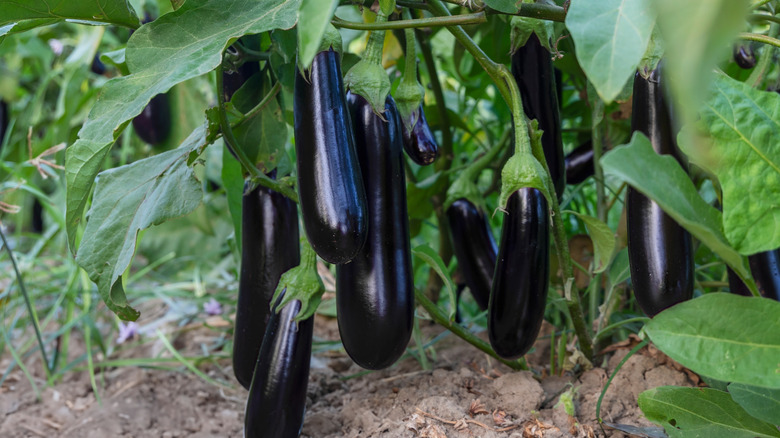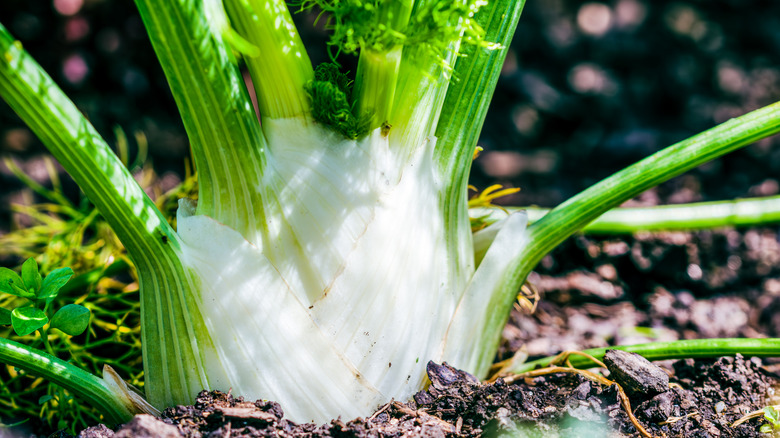The Disadvantages Of Growing These 9 Plants Near Okra
Okra, often called lady's finger, is a crop beloved across the southern United States. But you don't need to live there to grow it in your garden. In fact, okra can thrive in zones 4 to 11 in the summer and into fall. If you're looking for tips for growing okra in the garden, you're probably wondering which plants make for the best and worst neighbors. Planting certain crops alongside okra brings about certain disadvantages, like increased vulnerability to root knot nematodes and fierce competition for nutrients and space.
Root knot nematodes are microscopic worms that can inflict tremendous harm on okra plants and ruin your crops. As you'll see below, certain companions, like tomatoes, are likely to attract these pathogens to the okra crops. At the same time, heavy feeders like cauliflower typically siphon off the nutrients okra badly needs to thrive and yield bountiful harvests. Finally, plants like fennel just make bad neighbors because of their allelopathic properties. Our lineup below consists of plants that you should not grow as okra companions for these reasons.
Cauliflower
Okra is a nutrient-hungry plant that requires a rich and fertile soil full of organic nutrients, which it can get from natural fertilizers and compost. Cauliflower is a heavy feeder that's similar in its need for rich soil. This might lead you to believe the two plants would be perfect neighbors. But in fact, okra and cauliflower only end up competing for nutrients when grown in close proximity. It's best to give them some space and their own bit of soil to feed on.
Tomatoes
Tomatoes and okra are bad neighbors because they have the same weakness: root knot nematodes. These are tiny, microscopic parasites that make their way into the roots of tomato and okra plants. Once inside the roots, they'll feed on them, reproduce inside them, and wreak havoc on your harvest. By growing root knot nematodes' favorite foods next to each other, you're giving the parasites an invitation they can't resist.
Cucumbers
Cucumbers are beloved by gardeners because they're so easy to grow. While cucumbers make great companion plants for lots of root vegetables, they're not ideal neighbors for okra plants. Cucumbers have vines and large leaves, which can crowd the base of the okras. They like lots of sun, so they might try to take over the okra plant to avoid living in its shadow. In addition, okra and cucumbers are both susceptible to powdery mildew. Untreated mildew infections on cucumber plants can spread to okra and negatively impact your harvest.
Sweet potato
Unfortunately, nematodes don't just love tomatoes and okra. These microscopic worms are not too picky, and they also like to snack on sweet potatoes. Sweet potatoes grow in the ground, so they attract these parasites into the soil and lead them straight to the roots of the okra plants, exposing them to unnecessary danger. The risk of infection is so great that it's best to wait a few years before you plant any okra in the ground where you used to grow sweet potatoes.
Peppers
Much like okra, sweet potatoes, and tomatoes, peppers fall prey to root nematodes. This makes them potentially dangerous companion plants, since they can attract root nematodes to the same part of the garden where you're growing okras. If you want to grow both crops in the garden, make sure they're far apart from each other. As with sweet potatoes, practicing crop rotation after growing peppers should help keep your okra plants nematode-free.
Broccoli
Hailing from the same brassica family as cauliflower, broccoli also competes with okra for nutrients from the soil. Broccoli (and others from the family, like mustard greens) are best planted away from other heavy feeders. The list of plants that require a good deal of nutrition includes asparagus, strawberries, pumpkins, corn, and our good old okra. Instead, broccoli does well next to herbs like sage, rosemary, thyme, and oregano.
Squash
Whether they're winter or summer squash varieties, it's common for this plant to grow in a vine pattern. As a result, they tend to grow wild and unruly and can get quite competitive. Their large leaves can crowd your okra plant and give it unnecessary shade. The resulting lack of light is detrimental to okra, a southern plant that loves heat and sunlight. In addition, squash can attract bugs and nematodes that could damage your okras. To keep your okra plants happy, keep them away from squash.
Eggplant
Eggplants grow around the same time of the year as okra and like similar, nutrient-rich soil filled with organic matter. Both crops require 1 to 2 inches of water per week, so you might be tempted to plant them next to each other and make your watering and soil prep routines more straightforward. But sadly, root knot nematodes love eggplant too much to make it a viable companion plant for okra. Once again, this microscopic worm is a reason to keep these two otherwise perfect neighbors far from each other.
Fennel
Fennel is delicious, easy to grow, and low maintenance, but it also releases toxins into the ground in a process known as allelopathy; these chemicals can slow and stunt the growth of fennel's neighbors. That's why you'll want to avoid planting fennel next to other herbs and vegetables in your garden, including okra. In fact, it's best to plant it in containers rather than in the ground.
